Former US President Jimmy Carter dies aged 100
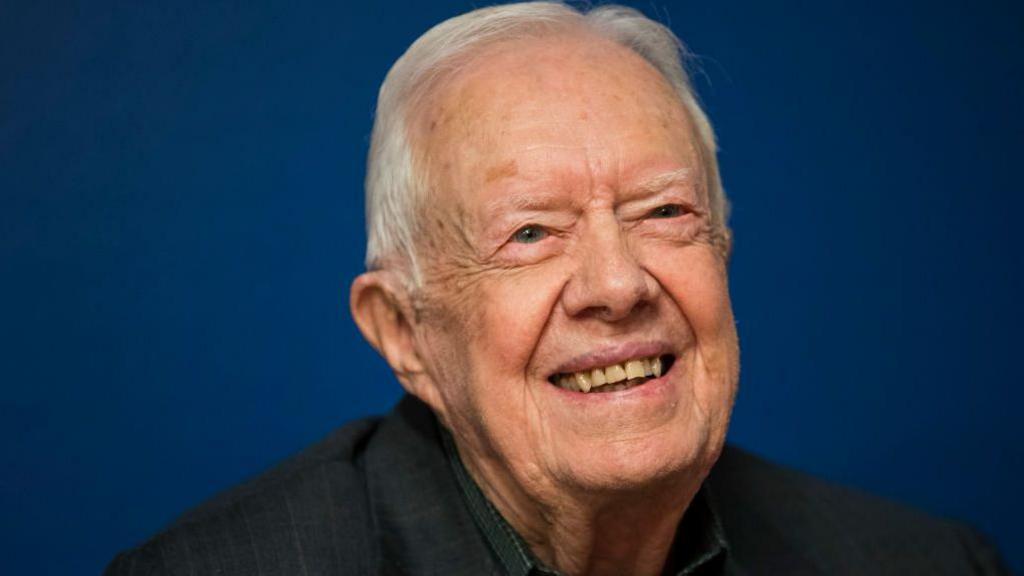
Former US president, and Nobel Peace Prize winner Jimmy Carter, has died aged 100 years-old
- Published
Former US president, and Nobel Peace Prize winner, Jimmy Carter has died aged 100 - living longer than any president in history.
Jimmy Carter was the 39th US president and one of the first presidents to take climate change seriously.
As president he helped organise an historic peace agreement between Egypt and Israel and after his presidency campaigned for peace, the environment and human rights - earning a Nobel Peace Prize for his work.
Many leaders around the world have responded with tributes to celebrate his life and achievements. Read on to find out more about President Carter.
- Published16 January
- Published19 June 2019
Tributes to Jimmy Carter from around the world
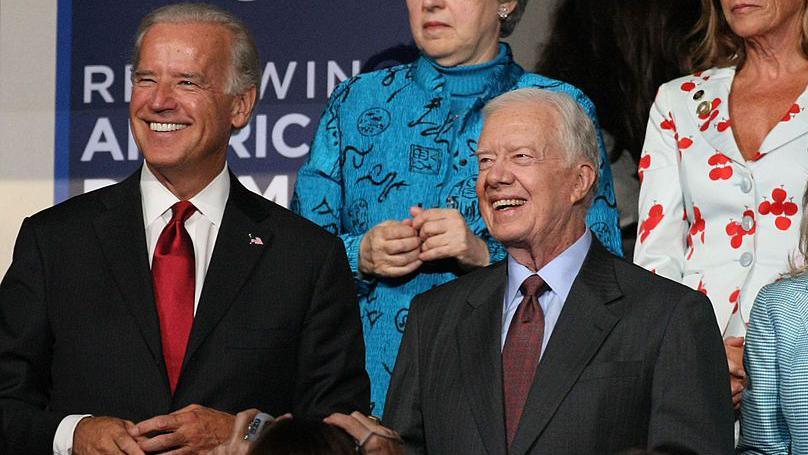
US President Joe Biden called Jimmy, seen here on the right, a "remarkable friend"
Speaking about Jimmy Carter, current US President Joe Biden said he was "a man of great character and courage, hope and optimism."
"He showed that we are great nation because we are a good people – decent and honourable, courageous and compassionate, humble and strong." he said.
Vice President Kamala Harris said "I will always remember his kindness, wisdom, and profound grace."
"His life and legacy continue to inspire me — and will inspire generations to come. Our world is a better place because of President Carter."
"He reminded our nation and the world that there is strength in decency and compassion," she wrote.
King Charles III said Carter was "a committed public servant, and devoted his life to promoting peace and human rights. His dedication and humility served as an inspiration to many".
The king added that remembered "with great fondness his visit to the United Kingdom in 1977".
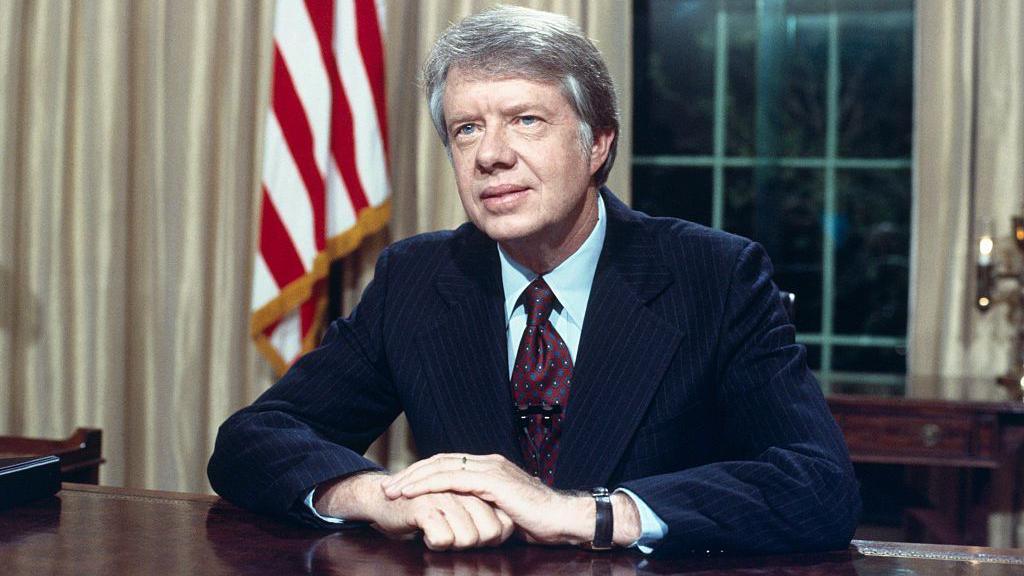
Jimmy Carter in office in the White House
"The challenges Jimmy faced as president came at a pivotal time for our country and he did everything in his power to improve the lives of all Americans. For that, we all owe him a debt of gratitude," said Donald Trump, who is set to return to the White House as the next president of the United States after winning the 2024 US election.
UK Prime Minister Sir Keir Starmer paid tribute to Carter, saying he: "redefined the post-presidency with a remarkable commitment to social justice and human rights at home and abroad".
Egyptian President Abdel Fattah al-Sisi said: "His significant role in achieving the peace agreement between Egypt and Israel will remain etched in the annals of history, and his humanitarian work exemplifies a lofty standard of love, peace, and brotherhood"
Who was Jimmy Carter?
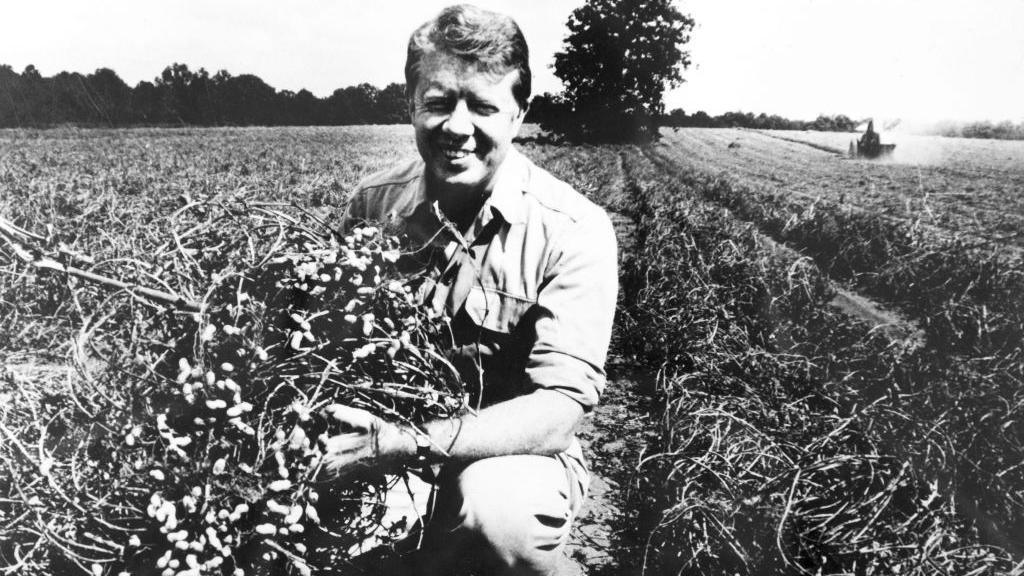
Jimmy Carter on his peanut farm, in Plains, Georgia, in 1976.
The former president was born on 1 October 1924 as James Earl Carter Jr, in the small town of Plains, Georgia. He was the eldest of four children. His father ran a family peanut business, and his mother, Lillian, was a nurse.
Jimmy joined the US Navy, but had to resign a few years later in 1953 when his father died, to take over his family's struggling peanut farm. But he managed to turn the business around, becoming quite wealthy in the process.
He then entered politics and in 1970 was elected governor of Georgia, where he was a strong advocate for racial and gender equality.
Then in 1977, Carter was elected as the 39th president of the United States, beating Richard Nixon.
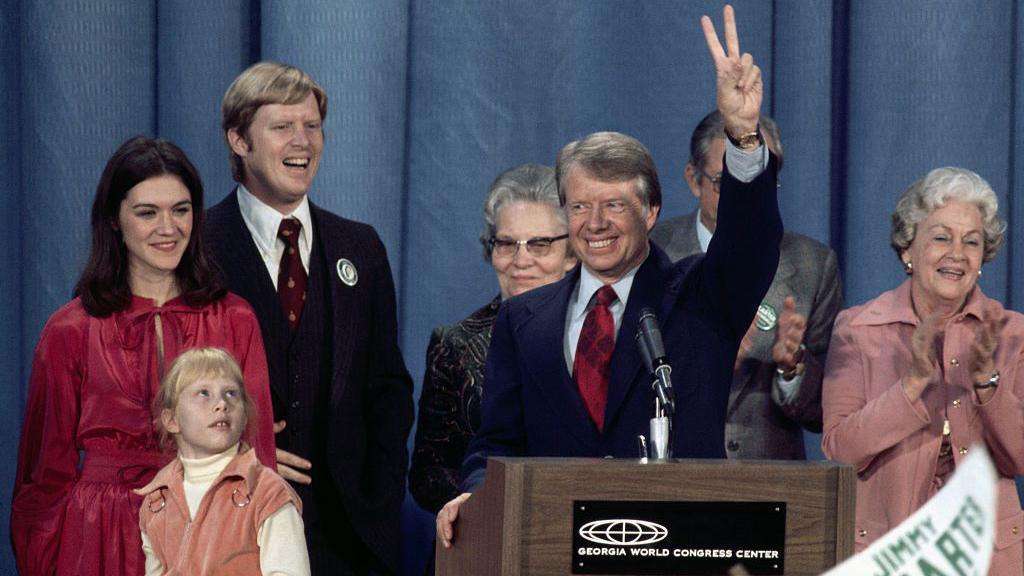
Jimmy Carter with family celebrating victory in the 1976 presidential election
Jimmy Carter as US President
Democrat Jimmy Carter served as US president for one term between 1977 and 1981.
During his time in office he championed gender equality and appointed women to key positions in his team.
He also tried (unsuccessfully) to introduce an Equal Rights Amendment to the US Constitution which would have promised rules against discrimination because of gender.
Carter was also one of the first international leaders to take climate change seriously. He put solar panels on the White House roof - later removed by President Ronald Reagan - and passed laws to protect millions of acres of unspoiled land in Alaska from being developed and built upon.
He also tried to introduce a universal healthcare system - similar to the NHS in the UK - where people can get healthcare for free, but failed to make it happen.
One of his greatest achievements in office took place in 1978, when he helped to broker a historic peace agreement between Egypt and Israel.
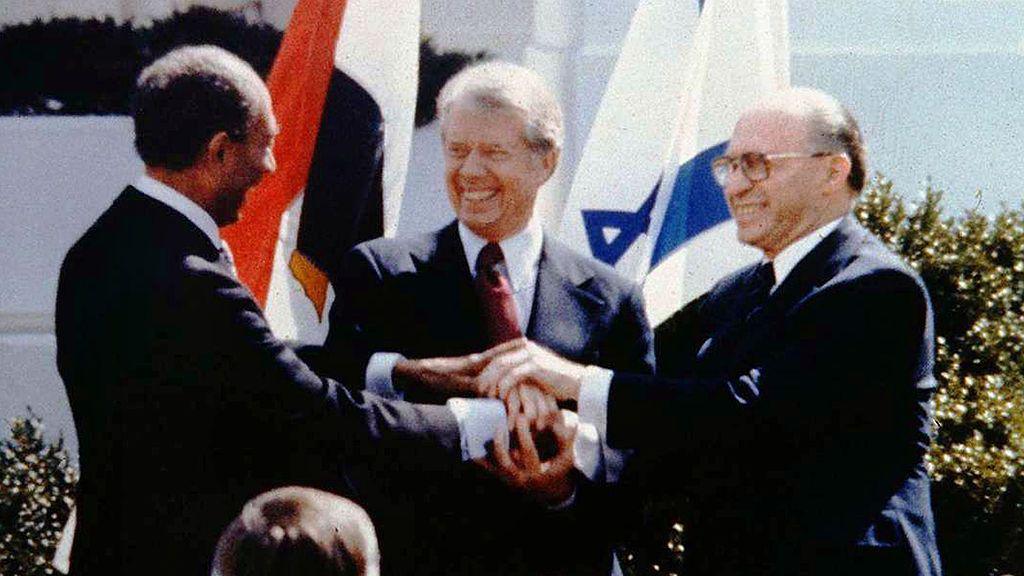
Egyptian President Anwar Sadat (L), US President Jimmy Carter (C) and Israeli Prime Minister Menahem Begin all shake hands after a peace deal in 1979
However, although Carter's time as President is often remembered fondly, it was not without problems.
Carter's popularity fell sharply when the US suffered an energy crisis in 1979 and the economy went into a recession the next year with unemployment and interest rates rising.
His handling of the Soviet invasion of Afghanistan in 1979 and the revolution in Iran, during which American hostages died, led to him having one of the lowest approval ratings of any US president when he left office.
He ran for re-election in 1980 but was beaten in a landslide win by Republican Ronald Reagan.
Jimmy Carter's life after presidency
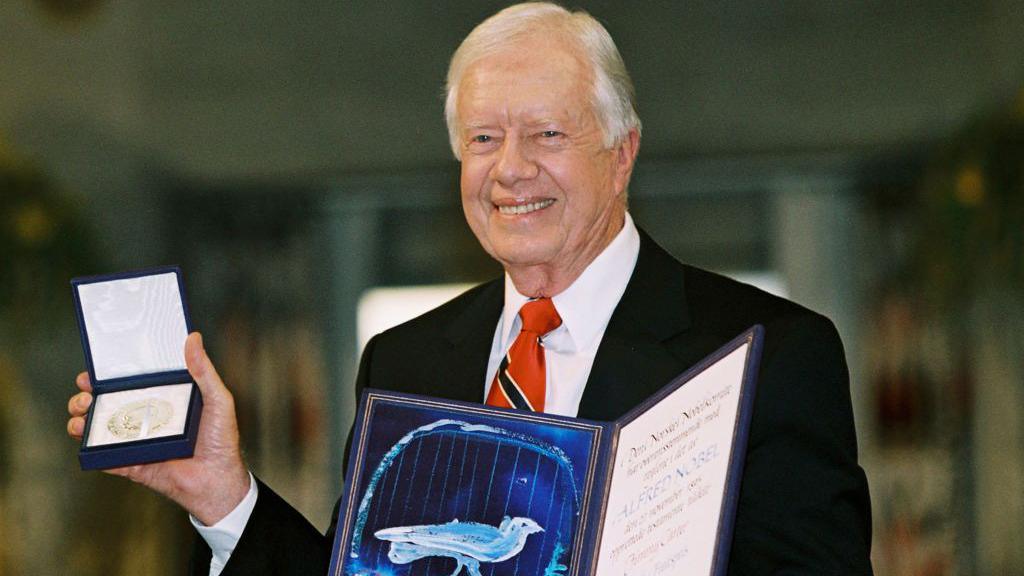
Jimmy Carter won the Nobel Peace Prize in 2002, for his decades of humanitarian work
After presidency, Carter went on to focus on charity and human rights work.
Unlike a lot of former presidents he chose not to profit off his time in power but instead live a modest life.
In 1980 he founded the Carter Center with his wife Rosalynn, which works to promote human rights and help bring peace to international conflicts.
Carter travelled the world as a peace worker and public health campaigner. He made visits to North Korea in 1994 and Cuba in 2002 during conflicts.
The Carter Center is credited with helping to cure river blindness, trachoma and Guinea worm disease - debilitating illnesses which have reduced from millions of cases in Africa and Asia in 1986 to a handful today.
He later won the Nobel Peace Prize in 2002 for his "decades of untiring effort" for human rights and work to promote peace.
Carter also played a central role in promoting Habitat for Humanity, a non-profit organisation which builds and finds homes for those in need.
